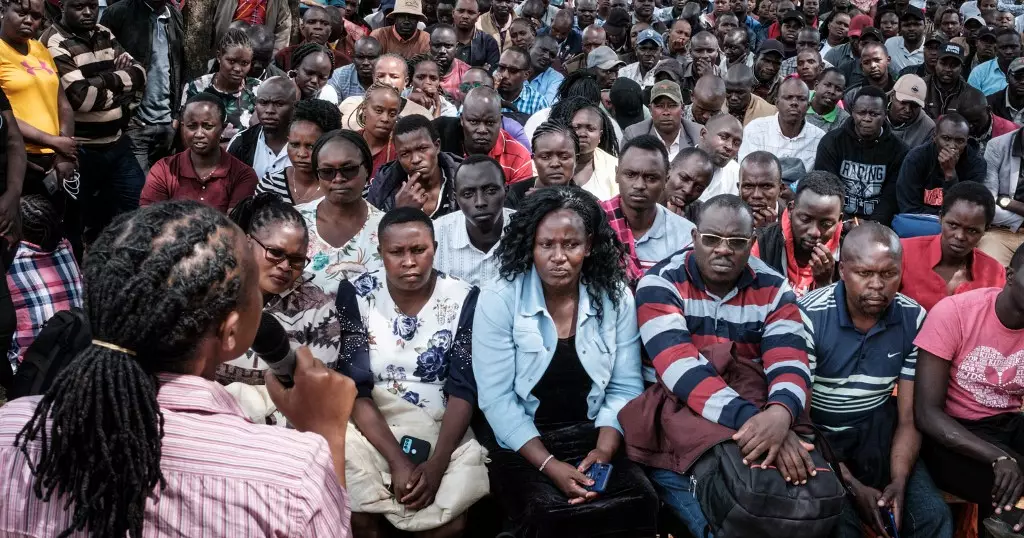The number of registered young Kenyan voters has dropped five percent since the 2017 poll, in contrast to over-35s, whose tally has increased, according Kenya’s election commission .
Many have no interest in participating in an electoral process they widely dismiss as corrupt and pointless.
Over 22 million Kenyans are eligible to take part in this year’s polls, with young people accounting for less than 40 percent of that number, the Independent Electoral and Boundaries Commission (IEBC) said.
Kenya’s economic powerhouse ranks among the world’s youngest countries — three-quarters of Kenyans are aged under 34, according to government figures.
“We expect the best candidate to win for the presidency and also our issue, each and every place there is calmness, and I hope each and every person will come to vote tomorrow to vote for his best candidate and we want to pray that there is not any chaos that we will overcome from tomorrow onwards” said Joshua Koech, Eldoret resident.
In the months leading up to the polls, observers suggested that the youth factor could help heal Kenya’s often toxic tribal politics, with a younger electorate less likely to vote according to ethnic affiliations.
“Here in Eldoret I have seen that the residents here have attained maturity in politics. It used to happen that in previous elections some used to incite people to fight against each other to attain political mileage, but this time people here have become politically mature “ said Erick Siror, Public service vehicle driver.
Thirty years after the emergence of multi-party democracy in Kenya, many are disillusioned by constant battles over the credibility of polls and disputed election results.
This year’s presidential vote is largely a two-horse race between Deputy President William Ruto, 55, and Raila Odinga, the 77-year-old veteran opposition leader who is now backed by the ruling party.
If both leaders accept the results, it will be a first for the country since 2002.
***AFP***




















Discussion about this post